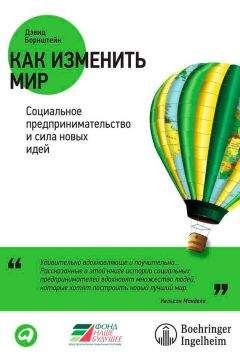Дэвид Пристланд - Красный флаг: история коммунизма
969
D. Deletant, Ceau§escu and the Securitate: Coercion and Dissent in Romania, 1965—1989 (London, 1995), pp. 154—6.
970
M. Vickers, The Albanians: A Modern History (London, 1995), p. 196.
971
P. Lendvai, Eagles in Cobwebs. Nationalism and Communism in the Balkans (London, 1969), p. 196.
972
A. Buzo, The Guerrilla Dynasty: Politics and Leadership in North Korea (London, 1999), p. 59.
973
Kim il Sung, On the Three Principles of National Unification (Pyongyang, 1972), p. 3.
974
Взгляд на корейское общество, подчеркивающий силу стратификации, см. в H.-L. Hunter, Kim Il-Song's North Korea (Westport, 1999), ch. 1. Взгляд, подчеркивающий толерантность и объединение, см. в В. Cumings, “The Last Hermit”, New Left Review 6 (2000).
975
О подробностях повседневной жизни см. в Hunter, Kim Il-Song, pp. 173—4.
976
A. Horvath and A. Szakolczai, The Dissolution of Communist Power: the Case of Hungary (London, 1992), pp. 62—3.
977
B. Denitch, The Legitimation of a Revolution: the Yugoslav Case (New Haven, 1976), p. 94.
978
Deletant, Ceauşescu and the Securitate, pp. 212—16.
979
L. Siegelbaum, “The Faustian Bargain of the Soviet Automobile”, in PEECS papers No. 24 (Trondheim, 2008), p. 1.
980
Цит. по J. Zatlin, “The Vehicle of Desire: The Trabant, the Wartburg, and the End of the GDR”, German History 15, 3 (1997), p. 358.
981
Там же, с. 359.
982
M. Burawoy and J. Lukacs, The Radiant Past: Ideology and Reality in Hungary’s Road to Capitalism (Chicago, 1992), pp. 125—6.
983
Основной аргумент венгерского экономиста Яноша Корнай, Economics of Shortage (Amsterdam, 1980).
984
S. Goodman, “Soviet Computing and Technology Transfer: An Overview”, World Politics 31 (1979), p. 567.
985
S. Kotkin, Armageddon Averted. The Soviet Collapse, 1970—2000 (Oxford, 2000), pp. 63—4.
986
N. Shmelev, in S. Cohen and K. Van den Heuvel, Voices of Glasnost Interviews with Gorbachev’s Reformers (New York, 1989), p. 149.
987
J. Kopstein, The Politics of Economic Decline in East Germany, 1945—1989 (Chapel Hill, 1997), p. 190.
988
П. Шелест. «Он умел вести аппаратные игры, а страну забросил…» / Ю. Аксютин. Брежнев: Материалы к биографии. М., 1991. С. 218.
989
Z. Mlynaf, Night Frost in Prague: the End of Humane Socialism, trans. P. Wilson (London, 1980), p. 86.
990
Kotkin, Armageddon Averted, p. 50.
991
Цит. по Kopstein, Politics, p. 43.
992
См. там же, глава 2.
993
Mlynaf, Night Frost, p. 66.
994
G. Golan, Reform Rule in Czecholovakia: the Dubcek Era, 1968—1969 Cambridge, 1973), pp. 230—1.
995
Jaromir Navratil, The Prague Spring 1968: A National Security Archive Documents Reader, trans. M. Kramer et al. (Budapest, 1998), pp. 20—2.
996
Mlynaf, Night Frost, p. 82—6.
997
Там же, с. 44.
998
J. Satterwhite, “Marxist Critique and Czechoslovak Reform”, in R. Taras (ed.), The Road to Disillusion. From Critical Marxism to Postcommunism in Eastern Europe (Armonk, NY, 1992), pp. 115—34.
999
J. Piekalkiewicz, Public Opinion Polling in Czechoslovakia, 1968—69: Results and Analysis of Surveys Conducted during the DubcekEra (New York, 1972).
1000
A. Dubcek, Hope Dies Last. The Autobiography of Alexander Dubcek, trans. J. Hochman (London, 1993), p. 150.
1001
Navratil, The Prague Spring, p. 67.
1002
M. Kramer, “The Czechoslovak Crisis and the Brezhnev Doctrine”, in С Fink, P. Gassert and D. Junker (eds.), 1968: The World Transformed (Cambridge, 1998), pp. 121—45.
1003
M. Kundera, “Preface”, in J. Skvorecky, Mirakl (Paris, 1978), p. 4.
1004
A. Brown, The Gorbachev Factor (Oxford, 1996), pp. 30—1, 41.
1005
Цит. по R. Tokes, Hungary’s Negotiated Revolution: Economic Reform, Social Change, and Political Succession, 1957—1990 (Cambridge, 1996), p. 72.
1006
Kopstein, Politics, p. 81.
1007
V. Bunce, The Empire Strikes Back: The Evolution of the Eastern Bloc from a Soviet Asset to a Soviet Liability”, International Organization 39 (1985), p. 20.
1008
K. Poznanski, “Economic Adjustment and Political Forces: Poland since 1970”, International Organization 40 (1986), p. 457.
1009
Horvath and Szakolczai, The Dissolution of Communist Power.
1010
Там же, с. 110.
1011
К. Jarausch, “Care and Coercion. The GDR as Welfare Dictatorship”, in K. Jarausch (ed.), Dictatorship as Experience. Towards a Socio-Cultural History of the GDR (New York, 1999), ch. 3.
1012
M. Raeff, The Well-ordered Police State: Social and Institutional Change through Law in the Germanies and Russia, 1600—1800 (New Haven, 1983). Такие же параллели проводят Хорват и Саколчаи.
1013
Xiaobo Lii and Elizabeth Perry, Danwei. The Changing Chinese Workplace in Historical and Comparative Perspective (Armonk, NY, 1997), pp. 169—94.
1014
Интервью Эндрю Вальдера в книге A. Walder, Communist Neo-Traditionalism.Work and Authority in Chinese Industry (Berkeley, 1986), p. 140.
1015
Там же, сс. 141—142.
1016
A. Zinoviev, The Reality of Communism (London, 1985), p. 139.
1017
V. Shlapentokh, Public and Private Life of the Soviet People: Changing Values in post-Stalin Russia (New York, 1989), p. 117.
1018
Zinoviev, Reality, p. 139.
1019
Shlapentokh, Public and Private, p. 118.
1020
Интервью цит. по A. Yurchak, Everything was Forever, until It was No More The Last Soviet Generation (Princeton, 2006), pp. 96—7.
1021
Этот случай описывается в М. Fulbrook, The People’s State: East German Society from Hitler to Honecker (New Haven, 2005), p. 239.
1022
Burawoy and Lukacs, Radiant Past, pp. 40—2.
1023
M. Haraszti, A Worker in a Worker’s State: Piece-rates in Hungary, trans. M. Wright (Harmondsworth, 1977), pp. 88—9.
1024
Интервью из Walder, Communist Neo-Traditionalism, p. 176.
1025
D. Kideckel, The Solitude of Collectivism: Romanian Villagers to the Revolution and Beyond (Ithaca, 1993), p. 130.
1026
A. Zinoviev, The Yawning Heights, trans. G. Clough (London, 1979), pp. 186—8. Рус. текст А. Зиновьев. Зияющие высоты.
1027
Zinoviev, Reality, pp. 127, 65.
1028
Horvath and Szakolczai, The Dissolution of Communist Power, p. 55.
1029
S. Shirk, Competitive Comrades: Career Incentives and Student Strategies in China (Berkeley, 1982), p. 150.
1030
Shlapentokh, Public and Private, pp. 165,171; V. Shlapentokh, Love, Marriage, and Friendship in the Soviet Union: Ideals and Practices (New York, 1984).
1031
Haraszti, A Worker in a Worker’s State, pp. 88—9.
1032
Там же.
1033
Цит. по A. Port, Conflict and Stability in the German Democratic Republic (Cambridge, 2007), P. 245.
1034
D. Mason, Public Opinion and Political Change in Poland (Cambridge, 1985), p. 86.
1035
D. Bahry, “Society Transformed? Rethinking the Social Roots of Perestroika”, Slavic Review 52 (1993), p. 537.
1036
Burawoy and Lukacs, Radiant Past, p. 123.
1037
Цит. по Kideckel, Solitude of Collectivism, p. 183.
1038
M. Lampland, The Object of Labor: Commodification in Socialist Hungary (Chicago, 1995), pp. 335—6.
1039
См. обзор в R. Tokes, Murmur and Whispers: Public Opinion and Legitimacy Crisis in Hungary, 1972—1989 (Pittsburgh, 1997), p. 14.
1040
Mason, Public Opinion, p. 63.
1041
Shlapentokh, Public and Private, p. 192.
1042
Там же, с. 8o-8i.
1043
Fulbrook, The People’s State, pp. 230—1.
1044
Tokes, Hungary’s Negotiated Revolution, p. 139.
1045
Yurchak, Everything was Forever, p. 201.
1046
T. Ryback, Rock around the Bloc: a History of Rock Music in Eastern Europe and the Soviet Union (New York, 1990), p. 129.
1047
Там же, с. 146.
1048
Yurchak, Everything was Forever, p. 215.
1049
Цит. там же, с. 234.
1050
W. Burr (ed.), The Kissinger Transcripts (New York, 1998), pp. 59—66.
1051
R. Balsvik, Haile Selassie’s Students. The Intellectual and Social Background to Revolution, 1952—1977 (Lansing, Mich., 1985), pp. 213—23.


